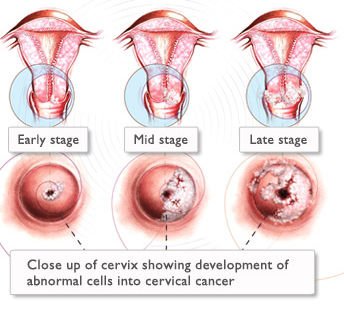
At least a few times a month in family practice, the walk-in, or the emergency department, I encounter a distraught patient who suddenly comes to the realization that he or she needs to be more "careful" about their practices and encounters. Our conversation usually goes something like this: "Hey doc, I need you to check me for everything, and when I say everything, I mean everything." Some of you may have clued in that everything is referring in particular to sexually transmitted infections (STDs). It is possible to diagnose an STD with the right investigations, but what if we could prevent them with a vaccine like we prevent polio and measles? When it comes to human papillomavirus infection (HPV), we can.
What is HPV?
Human papillomavirus is a virus that causes cervical cancer and genital warts. Cervical cancer is the third most common cancer in females. HPV can also cause cancers of the vulva and vagina in women. Many people are under the false impression that HPV is an infection that affects only women. In women and men, HPV infection can cause genital warts, anal cancer, and in rare cases, cancers of the head and neck.
HPV is spread by skin-to-skin contact. You can contract HPV even if you wear a condom because it does not cover the entire genital skin. You cannot get an HPV infection by touching an object like a toilet seat. The risk of contracting HPV increases with the number of sexual partners. HPV infection is extremely common. Almost 80% of sexually active adults will acquire HPV infection before the age of 50. In majority of cases, people do not show any signs of symptoms of HPV. Most infected people, however, will clear the infection within two years without any treatment.
In up to 20% of women, the infection can persist and some turn into cancer. It takes approximately 20 years for HPV infection to cause cervical cancer. It is important that every woman who is sexually active and over the age of 21 get routine pap tests every two to three years to determine whether there are any pre-cancerous or cancerous cells on the cervix.
[caption id="attachment_7939" align="aligncenter" width="518"] close up of a wart cluster caused by HPV[/caption]
close up of a wart cluster caused by HPV[/caption]
How do you prevent HPV?
There are two vaccines currently available to protect against HPV infection, Gardasil and Cervarix. In Canada, HPV vaccine is offered to all females in grade 8. The vaccine works best in individuals prior to becoming sexually active because it can prevent HPV infection, thus also preventing the chance of HPV-related cancers. However, studies have shown that the vaccine can also be beneficial in individuals who have already become sexually active and in those who may have already have had exposure to HPV. The HPV vaccine is also very effective in reducing the risk of genital warts in both males and females. Canadian guidelines recommend that HPV vaccine can be administered from age 9 to 26. There are three doses given as injections over the course of 6 months. However, many studies have demonstrated the benefits to giving these vaccines to people up to the age of 46.
Medical illness, especially cancer, is a humbling entity for those who have experienced it personally or had a family member who has been affected by it. An individual who has had a family member go through cervical or anorectal cancer can easily understand the clear benefit of a vaccine that can prevent it. With the right education, so will the rest of the population. In my practice, I offer the HPV vaccine to all unvaccinated women and men up until the age of 46. If you want to know if the HPV vaccine will benefit you, speak to your family doctor or gynecologist.
[caption id="attachment_7940" align="aligncenter" width="344"] changes of the cervix over time leading to cervical cancer[/caption]
changes of the cervix over time leading to cervical cancer[/caption]
References: www.uptodate.com

























